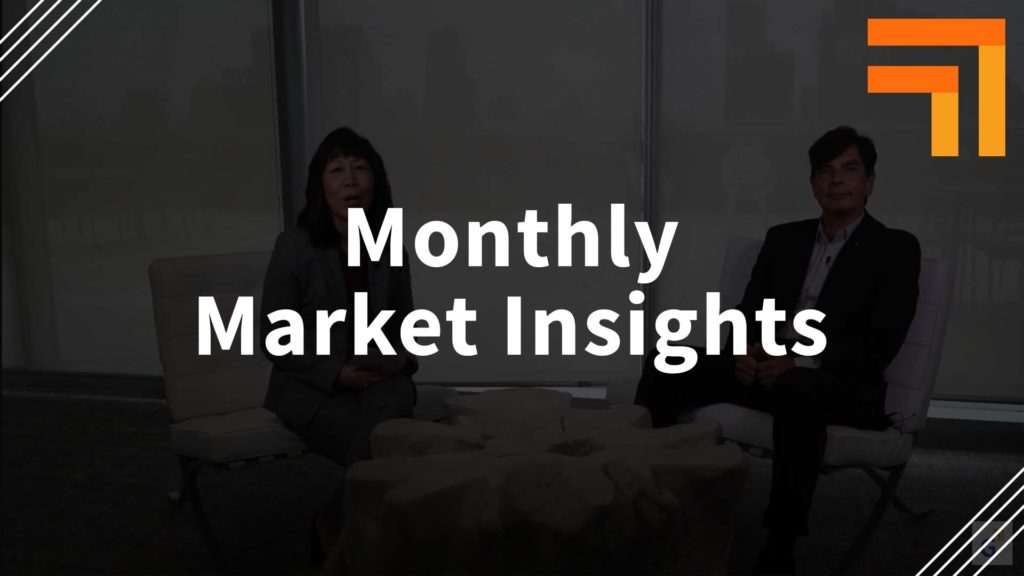This week's questions
[00:00] : Intro
[00:00:57] : So Wayne, since our last video in June, we were expecting a strong recovery in Q in the second half of 2020. Based on a couple of things, there was massive monetary stimulus, massive government spending and expectations that the pandemic’s going to recede because of the vaccines. So what do you see are the key events during the past couple of months?
[00:03:18] : So do you want to talk about each section, maybe delve deeper into each section? So the vaccines.
[00:04:14] : Is that affecting consumer spending at this point?
[00:04:39] : You mentioned inflation, so inflation has ticked up, but there’s some reasons behind it, right? And that is, you know, pent up demand, you know, with the reopening. There’s also supply chain issues.
[00:05:24] : You also mentioned yields, you know, they 10 year Treasury yield. So maybe we should explain why that 10 year Treasury number is important and it’s an indication of confidence, right?
[00:07:35] : So what does this mean for our portfolios?
[00:11:21] : Do you want to talk a little bit more about Evergrande and you know, the Chinese, the issue with the China crackdown for lack of a better term?
Sue Talbot: [00:00:00] Hi, everyone, thanks for joining us today and welcome to Monthly Market Insights. My name is Sue Talbot and I’m a partner and portfolio manager here at Genus and our monthly videos, we’re going to recap the key events that happened during the past couple of weeks, and we’re going to explain to investors why they matter. And also, particularly if you’re Genus client. We hope to provide you with insights so that you can better understand how these events affect the market and the Genus portfolios. And with me today is Wayne Wachell, our Executive Chair and Chief Investment Officer. Hi, Wayne. Nice to see you again in person. It’s been a while.
Wayne Wachell: [00:00:40] It’s great.
Sue Talbot: [00:00:41] So I’d like to start off by acknowledging the lands on which we gather, including where I’m coming to coming to you from today, the ancestral traditional territories of the Muskingum and Tsleil-Waututh and Twassen peoples. So Wayne, since our last video in June, we were expecting a strong recovery in Q in the second half of 2020. Based on a couple of things, there was massive monetary stimulus, massive government spending and expectations that the pandemic’s going to recede because of the vaccines. So what do you see are the key events during the past couple of months?
Wayne Wachell: [00:01:22] Well, there are a few headwinds that hit the market and the economy, and number one was the Delta variant. It was more contagious than the previous strain, and there was evidence that actually that those that had the vaccine could actually get get get the Delta variant and also spread it. And that had an impact, of course, on travel and everything else. Right. And also hit consumer confidence and those kinds of things. So that was a bit of a bit of a blow to the reopening story as well. There were some inflation numbers that were higher anticipated that came through gas is going up dramatically, of course, and that’s that’s hitting the consumer. Of course, the concerns about that and how that might slow the recovery. And then thirdly, was China. China has moved towards common prosperity, cracking down on different segments in each industry, every ground. The real estate companies got hit recently, for example. So a lot of their stocks are down 80 90 percent. So that’s having an impact in that impacted the resource based areas that China consumes a lot of copper, for example, and metals. So that hit those areas and that could have a knock off effect on the global economy. So those those headwinds hit this this quarter. And what happened there was because of these these three headwinds is interest rates dropped back down to where they were back last year. The 10 year bond yield went from 1.75 back down to one 1.15, and that hit the reopen trade as well, which is more cyclically based. And that corrected, and of course, the recipients of the pandemic have been Big Tech, they they came back and did stronger during that during the last quarter. So it was a a step backwards for the reopening and the Big Tech, Cain came to the forefront.
Sue Talbot: [00:03:15] Right. You could have hit us with a lot of information there, Wayne. So do you want to talk about each section, maybe delve deeper into each section? So the vaccines, when they were first announced, everybody thought, OK, you know, the vaccines are going to put an end to the pandemic. But that didn’t happen because although the vaccines were able to, you know, prevent serious illness, it did not prevent the spread of COVID.
Wayne Wachell: [00:03:42] And if you look what’s happening, a of experience in Israel, for example, which is probably has a very high vaccination rate. They’re having a real getting hit very hard. They’ve got to hit the hard, very hard this summer and lots of hospitalizations, even with with the vaccine. So there’s concerns that come into the fall flu season. The same thing might happen here. So we’re hoping for the best, but you never know.
Sue Talbot: [00:04:05] And you said that that is affecting consumer confidence, right? And so that in turn, will affect the way consumers behave. And, you know, is that affecting consumer spending at this point?
Wayne Wachell: [00:04:17] There is still a spending going on, but you know, this can only go so far in terms of cost going up. That’s going to that eats into disposable income. Right now, there’s still lots of hope out there in terms of job. There’s nine million jobs that are open and that’s going to be good for consumer income longer term. But still, we have to get through this this next winter.
Sue Talbot: [00:04:37] Right. And the other thing is, you mentioned inflation, so inflation has ticked up, but there’s some reasons behind it, right? And that is, you know, pent up demand, you know, with the reopening. There’s also supply chain issues. So do you want to touch on those a little bit.
Wayne Wachell: [00:04:55] if there’s a supply demand and balance, supply chains already been impacted, for example, China is getting some COVID shutdown that’s impacting supply chain. There can’t be there’s not enough semiconductors for cars, for example. So these things are impacting inflation. Gas is going up dramatically, though, and that’s one of the big factors cutting into disposable income as well and also hitting consumer consumer confidence. So those things, I think we’ll do better once the economy opens up. But right now, they’re definitely hurting.
Sue Talbot: [00:05:24] And you also mentioned yields, you know, they 10 year Treasury yield. So maybe we should explain why that 10 year Treasury number is important and it’s an indication of confidence, right? Like economic confidence.
Wayne Wachell: [00:05:39] It’s an indicator of future economic growth. And it really we went from when during the pandemic can you use went down to 50 basis points and then rose to one point seventy five on expectations of a reopening.
Sue Talbot: [00:05:52] Right. Back in April that hit the high at one point seven one point seven.
Wayne Wachell: [00:05:55] Seventy five. And then they came down the summer in July August. You know, to one to 1.15 as people got very market, got concerned about the Delta variant and then China added to that as well, that malaise as well. But we’ve seen some turning point recently over the past past week, so we’re seeing some evidence of of a turnaround in those yiels.
Sue Talbot: [00:06:17] Right. So yields have been hovering around one point three ish and they just peaked, not peak, but they went up to about one point four on Friday. So what is that telling us when yields rise, bond prices fall? Right, right? And that is a sign of consumer confidence because when prices fall, that means people can go elsewhere to get better returns elsewhere. And when yields go down, prices go up. I know it’s kind of counterintuitive. This is why I want to explain it. So when bond prices go up, that means people, you know, there’s a demand for bonds and they’re going into this the safe haven, which are these 10 years.
Wayne Wachell: [00:07:03] What we’ve seen recently, just over the past week, after getting after rates dropping through the course of the second, the third quarter, they started to go back up again. And I think that’s just we’re starting to see well, number one, the the current wave, the COVID wave has rolled over, and that’s giving some hope to the recovery as well unless the vaccinations are there to keep getting extended and into the into the population.
Sue Talbot: [00:07:29] Ok, so
Wayne Wachell: [00:07:30] Sorry. So there’s there’s hope that basically we’re we’re seeing some of the light at the end of the tunnel.
Sue Talbot: [00:07:35] So what does this mean for our portfolios? You know, we’ve been talking a lot about this value versus growth trade that we’ve been holding this barbell strategy for, you know, months now. So what are we doing in our portfolios?
Wayne Wachell: [00:07:51] Well, we in April, May we started dialing back on the reopening trade. Just had it done so well. We had some. We saw some signs, getting a bit tired. And then through the course of July and into into August, we saw just more information, more bad news on Delta and in China, so we even pared back, we brought our portfolios back to a new position. So we’re sitting here right now, we think in a neutral position reopen or whether a closed economy or an open economy. And we’re looking we’re hopeful, though we’re hopeful. We’re hoping that twenty twenty two will be finally the strong recovery we’ve all been hoping for. And as they say, it’s often darkest before before the dawn. You know, we think we have a bit of a increase in COVID into into November, December, but we think next year there are still more positives out there. Number one, the massive printing of money and government spending still is in play. If you look at USM too, it’s still up 12 13 percent year over year
Sue Talbot: [00:08:55] And adds to money supply.
Wayne Wachell: [00:08:56] Money supply it’s higher than it was back in 2008, still.
Sue Talbot: [00:09:00] Right. So that means there’s lots of cash out there.
Wayne Wachell: [00:09:02] There is a lot of liquidity out there and lots of money out there to go into the marketplace. And still government sends spending and the consumer still have. They still have savings and they have a lot of pent up demand. They want to get out there and spend some money and have a good time, right? That’s going to come, we believe, as well with all supply chain disruptions. Inventories are very low, almost critically low in some places, and those have to be rebuilt, and when those are rebuilt, those go into into the economy, into GDP and give it a boost. So that’s going to be another positive thing as well. And then, you know, also. The number there still nine million jobs outstanding in the U.S. that have to be filled, and that’s going to help the consumer and keep incomes growing. So those are all positive things. With the money being printed, government spending inventories have to be built, their savings out, their pent up demand and also a lot of the the as I mentioned earlier, the Rio, the reopening trade has fallen back as underperformed and it’s to a point now we think where it’s becoming more attractive. And I think to a point now where we’ve discounted this wave, this bad news headwinds in this third quarter. And we’re waiting for some light at the end of the tunnel and we think it’s going to come in twenty twenty two.
Sue Talbot: [00:10:25] Ok, so there’s still some headwinds out there that we just talked about, but there’s also some good news as well.
Wayne Wachell: [00:10:33] There’s that good news. Still, is this being pushed further out and we have to build rebuild inventories. There’s pent up demand and there’s still lots of jobs to be filled out in the economy and the government and the central banks are still printing money like there’s no tomorrow, right?
Sue Talbot: [00:10:50] And the Fed has come out and actually said that they’re going to keep rates low, although they’re they’re going to start tapering, but it won’t happen until
Wayne Wachell: [00:10:58] They’re going to slowly start drawing liquidity, but it’s not going to happen till next year. And you know, the further good news is that more people are getting vaccines. There’s more natural herd immunity. Herd immunity developing as well. And therapeutics are coming. Pfizer’s announced therapeutics are coming. So those are all good news in terms of the cove, but also all the ammunition to propel growth in twenty twenty two.
Sue Talbot: [00:11:20] Ok, so do you want to talk a little bit more about Evergrande and you know, the Chinese, the issue with the China crackdown for lack of a better term? I guess Evergrande is the most leveraged real estate company in the world globally. And so there’s flashbacks to, you know, Lehman Brothers credit collapse. So how is evergreen affecting the global economy?
Wayne Wachell: [00:11:47] Well, number one there is there are some firewalls between North America and China, so I don’t think it’s going to impact our financial institutions here. You know, there are some investors that do have exposure to Evergrande to their equity into their bonds, but we’re pretty good from in terms of our financial institutions. However, ever grand when you have these kind of financial issues and the credit issues in the in the in the in the economy and there’s there’s there’s more than just Evergrande, there’s other real estate companies as well that are being impacted. Yes, so they that’s going to crimp growth in that economy and their economy is much more levered to credit than the rest of the world. Yes, and they need a correction and they have to pull that credit back. And when they do, there’s going to be some problems exposed, obviously. And the big the hope, of course, is that the central banks will step in and they will step in. They’ll come in and provide more liquidity. They’ll create shotgun marriages where they’ll bring different real estate companies together or banks together. If they have to, they will do all those hard things. On the other hand, those things will get done, but they will mitigate Chinese growth. And China has a second biggest economy in the world, and that’s going to slow global having a knock off effect in global growth. And when we saw Evergrande getting hit, it definitely had a knock off effect on commodity prices. And there are big consumer of commodities, obviously, so it could mitigate growth in twenty twenty two. But still, I think there’s enough ammunition. The things I outlined in terms of the banks, the central banks, the economy and the consumer out there to keep growth afloat in North America and in the West.
Sue Talbot: [00:13:29] Ok. And we do not have exposure to Evergrande?
Wayne Wachell: [00:13:32] No we don’t.
Sue Talbot: [00:13:32] Ok. Today is the National Day for Truth and Reconciliation, and Wayne, I’m wondering if you can share some of your thoughts with us.
Wayne Wachell: [00:13:45] Yes, I’d like to. Well, today, I think number one, it’s a day for Canadians to listen to the indigenous story and to. I reflect on that. You know, this is it’s it’s only a day, but it’s a it’s a symbolic symbol, I would say, in terms of what has to be addressed in this country. And as they say, symbolic acts are often very powerful and I think there’s a start on a road towards truth and reconciliation.
Sue Talbot: [00:14:17] Thanks for joining us, and if you’re a Genus client and have any further questions, please do reach out to your portfolio manager. And if you’re not yet a client, you can head over to our website and click on our Get Started page link below, where you can book a time to chat with a portfolio manager. Thank you.














